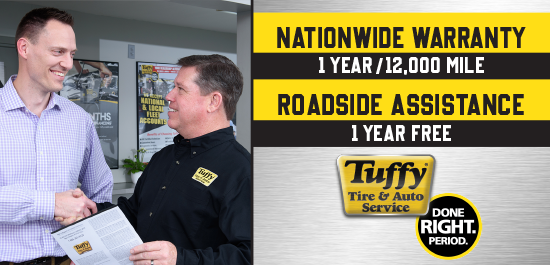| Pressing down on the brakes and not knowing how well they’ll perform can be an unnerving situation. Given that Americans spend 4.2 billion hours a year constantly using their brakes in traffic, it's obvious proactive brake maintenance is important. However, since brake replacement time frames vary anywhere between 30,000 and 60,000 miles, recognizing brake warning signs is imperative to avoid a complete brake failure. In an effort to keep drivers protected and save them money, NAPA Auto Parts, Jack Gregory, offers advice on what those warning signs mean and why you should pay attention to them. • Hear loud or frequent squeaks or grinding – A sound mechanism built into the brakes alerts drivers when replacements are needed. If a metal scraping sound occurs, the brakes have worn down to the rotors and need to be fixed. • Smell an acid, burning odor – Problems with calipers sticking or hanging up, as well as problems with the brake hose can produce the scent. Heavy braking also can cause an unpleasant odor. “As soon as the driver smells the odor, I recommend bringing the vehicle to an ASE-certified technician who can diagnose the source and fix the problem before it gets worse,” said Gregory. • Feel your brake pedal “squish” or become difficult to depress – Squishy brakes indicate air in the brake system caused by problemswith the master cylinder, possibly a leak. Difficult to depress brakes are also often caused by a malfunctioning power booster. • Feel shuddering or a continuous vibration in the steering wheel – Brake rotors or brake drums can trigger the vehicle to shake. “If you feel this shuddering for an extended period of time, it’s a warning sign to have your brakes inspected,” notes Gregory. • See rust or metal flakes peeling off your brakes – When the vehicle brake pads are worn and hit the rotors, rust or metal flakes appear. • See the brake system warning light turn on – A vehicle’s brake light usually warns the driver about worn brake pads. “The brake light can also indicate low fluids levels in the master cylinder, possibly caused by a leak,” added Gregory. “Either way, it’s important to have the problem addressed quickly before the brake system completely malfunctions putting you and others in danger.” To extend the life of a vehicle’s brakes, Gregory recommends staying alert and anticipating braking by slowing down before stopping is urgent. Tuffy Auto Service Centers offer a preventive maintenance program that includes a complete inspection and regular monitoring of vehicle systems. Additionally, all qualifying services and repairs are covered by a brake lining limited lifetime warranty, good at more than 230 Tuffy Auto Service Centers . Consumers can learn more about these programs by contacting their local Tuffy Auto or by visiting www.tuffy.com . |
Tuffy
Menu




